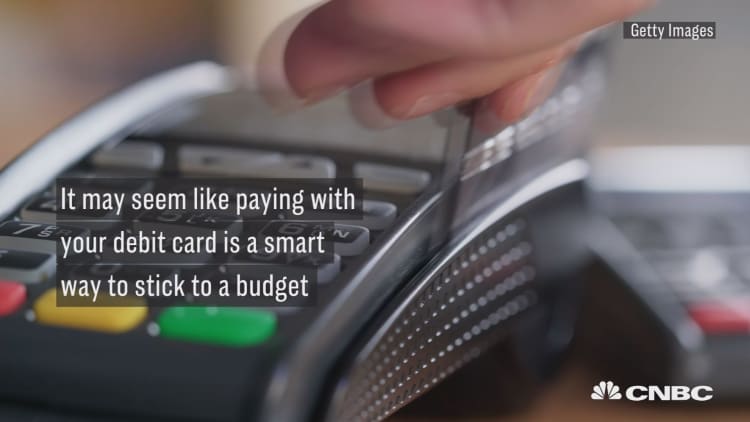Stores offer big discounts on first purchases and months without interest on their credit cards.
If you're not careful, however, you could find yourself with a heap of debt too.
The average retail card has an interest rate of around 26 percent. Some stores — including Zales and Staples — will charge you nearly 30 percent in interest each year, according to CreditCards.com, which recently studied the terms and conditions on dozens of store cards.
That's a lot higher than the typical credit card rate of around 20 percent.
"They're big money makers for the retailers," said Ted Rossman, an industry analyst at CreditCards.com.
Indeed, Macy's branded credit card accounted for nearly 40 percent of the store's profit in 2016.
Bruce McClary, vice president of communications at the National Foundation for Credit Counseling, gave an example of how the cards can hit your wallet.
"Let's say you were to charge $2,000 for a new game system, television and accessories," he said.
Many retail cards come with an interest-free period, but assume that when it was over you still had a balance of $1,500 and the interest rate kicked in at 25 percent. If you make the minimum payments, you'll shell out more than $2,800 over eight years. "That's 1,382.94 in interest," McClary said.
More from Personal Finance:
Still, half of Americans say they have applied for a retail card, according to CreditCards.com. Nearly 95 million people impulsively signed up for one at checkout. Store employees are often compensated if they're able to rack up the number of people who say yes to these cards, Rossman said.
"There can be pressure to sign up for these in the moment," he said. "Breathe a little and think about it for a few days."
How does a retail card differ?
Stores such as Loewe's or Amazon partner with banks or credit networks to issue retail cards.
Some of them are co-branded cards, which means they're stamped with a store name but can be used anywhere; others can only be used at their store.
Store cards may be easier to get than regular credit cards, Rossman said. You'll likely be approved even if your score is in the low 600s, which is considered poor by many credit-rating companies. That's why they're also more expensive.
Try not to carry a balance on these cards, Rossman said.
"That's always important with credit cards," he said, "but it's particularly important with retail cards."
Retail cards often come with deferred interest periods (typically six months). Although this sounds like a good deal, Rossman said, "anything remaining once the clock runs out would result in retroactive interest being charged on the initial balance."
General credit cards are more consumer-friendly, he said, and often come with longer periods without interest. And, once the interest kicks in, it's often not retroactive.
How will a retail card impact my credit?
Credit utilization — the amount of credit you use compared to how much you have — plays a big role in your score.
Because retail cards are often available to people with lower scores, they often come with smaller lines of credit. As a result, even a small purchase can lower your score because it accounts for a larger share of your total available credit.
Ideally, Rossman said, people should spend no more than 10 percent of their available credit.
Applying for a retail or regular credit card has the same impact on your score; it's a temporary hit of around five points, Rossman said.
Is a retail card ever a good idea?
A retail credit card can be good for people who can't get other credit cards and are trying to lift their score, Rossman said.
People who shop at a particular store frequently and would benefit from their in-house rewards might also apply.
Lastly, the cards could work well for customers who can take advantage of a nice sign-up bonus but then wipe out their balance before they're dinged with interest.



